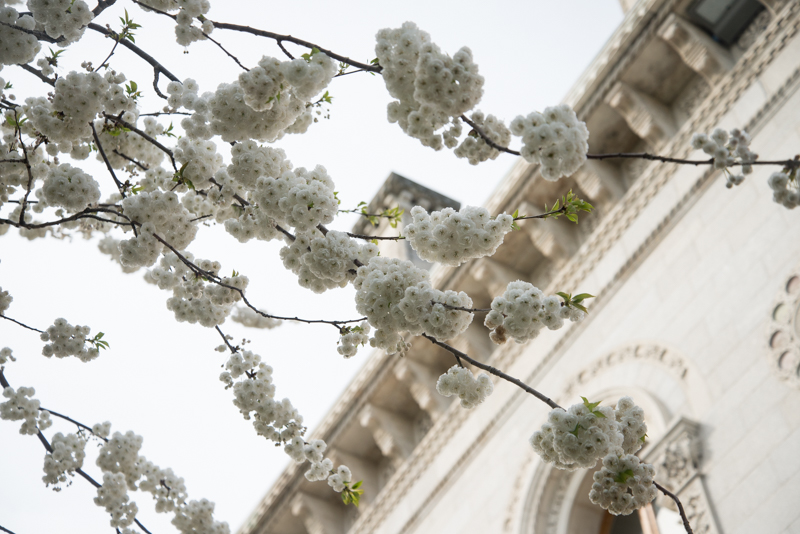On May 12th, the Trinity Ability Co_op’s Towards Inclusive Clubs and Societies Project won the Equality Campaign of the Year Award at the Student Achievement Awards Ireland (SAAI). The award, given to the campaign that did the most to protect and promote equality and welfare over the past year, is certainly an impressive victory and a win for accessibility, but it does raise the question – why is the Towards Inclusive Clubs and Societies Project important, and why aren’t more societies in Trinity engaging with it?
As an autistic student with mental health difficulties attending Trinity, I tend to avoid club and society events as I have sensory processing difficulties and have a challenging time communicating my needs. This has led me to feel left out of the social aspect of university life. There were fewer opportunities for me to meet new people and so I had few friends in my first year of university. I knew that I was missing out and this led me to feel depressed and isolated on campus.
I know I am not alone in this experience. According to College Board, the number of students enrolled in Trinity is due to reach over 20,000 in 2022. Over 2,000 students are registered with the Disability Service, which means that at least 10 per cent of students in Trinity have a disability. Clubs and societies can be inaccessible for a variety of reasons from location to sensory issues to a lack of knowledge about what needs members have and what supports they can provide, and going by these figures, at least one in ten people will be left out.
To combat this, the Trinity Ability Co_op launched the Towards Inclusive Clubs and Societies Project in the summer of 2021 with the primary goal of equipping clubs and societies with the necessary skills to make their organisations accessible and inclusive. For those unfamiliar with the Ability Co_op, it is a student-run initiative that, with the assistance of the Disability Service, aims to make Trinity a more inclusive environment for students with disabilities by providing inclusion training to staff and students.
It is clear, then, that with the right resources and motivation, societies and other student-led groups can become much more inclusive to students with disabilities
Led by Rachel Murphy and funded by the Trinity Trust, the Towards Inclusive Clubs and Societies project went on to develop a collaborative relationship with Trinity’s Central Societies Committee (CSC) and the Dublin University Central Athletic Club (DUCAC).
On December 2nd, I was one of the leaders of a Disability Inclusion Workshop for Trinity Societies in the Arts Block, leading a discussion on how to cater to students with sensory processing difficulties. Although the workshop was well-organised, very few societies attended, and this proved to be a continuous problem throughout the year.
Engagement with the Towards Inclusive Clubs and Societies Project should not be optional when such a vast number of students with disabilities attend Trinity. Although the reasons for the lack of engagement from societies are still unclear, there was a lack of external promotion of the training sessions from all parties involved. It may not have been clearly established how important this session was in providing accessible spaces within societies. The reasons for the lack of engagement with clubs and societies must be identified and a solution must be found with Trinity’s student-led bodies. Along with that, a concrete partnership must be established between the project and other student-led organisations to make disability inclusion a priority.
The Trinity Inclusive Clubs and Societies Guidelines were created to outline how clubs and societies can create a more inclusive environment for disabled students. The most important thing is to ensure that every club and society has an Accessibility and Inclusion Officer. This is crucial in ensuring that activities are accessible and to end the exclusion of students with disabilities from clubs and societies. Numerous training videos on accessibility have also been made by the Trinity Ability Co_op to ensure that clubs and societies have the resources to make their events accessible and inclusive.
A concrete partnership must be established between the project and other student-led organisations to make disability inclusion a priority
For the 2022 Society of the Year awards, the CSC collaborated with the Ability Co_op for the first time to create the Disability Inclusion Award, which rewarded the society that did the most to become more inclusive. An Cumann Gaelach won this new award for their efforts in creating an accessible environment for students with disabilities across campus such as electing an Accessibility Officer and keeping a record of all the accessible and inclusive events their society held throughout the year. It is clear, then, that with the right resources and motivation, societies and other student-led groups can become much more inclusive to students with disabilities.
The TCD Association and Trust have granted the Ability Co_op €4,860 to complete the next phase of the Towards Inclusive Clubs and Societies project. This involves expanding the project to include Trinity College Dublin Students’ Union (TCDSU) and Trinity Publications and training students with disabilities to work directly with student leaders to ensure that inclusion and accessibility are at the heart of all activities and procedures. Trinity’s Ability Co_op will also continue to provide training and resources to these organisations. These steps are crucial in ensuring that disability inclusion remains on the agendas of Trinity’s clubs and societies throughout the next year.
As I am entering my final year at Trinity, I hope that some changes will be made to create a more positive experience for Trinity’s students with disabilities. This change, however, cannot only come from within the project – it also requires clubs and societies to put more of an effort into making their spaces accessible for all.







